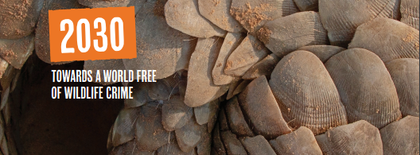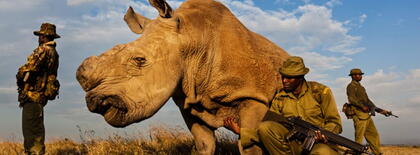PRESS RELEASE
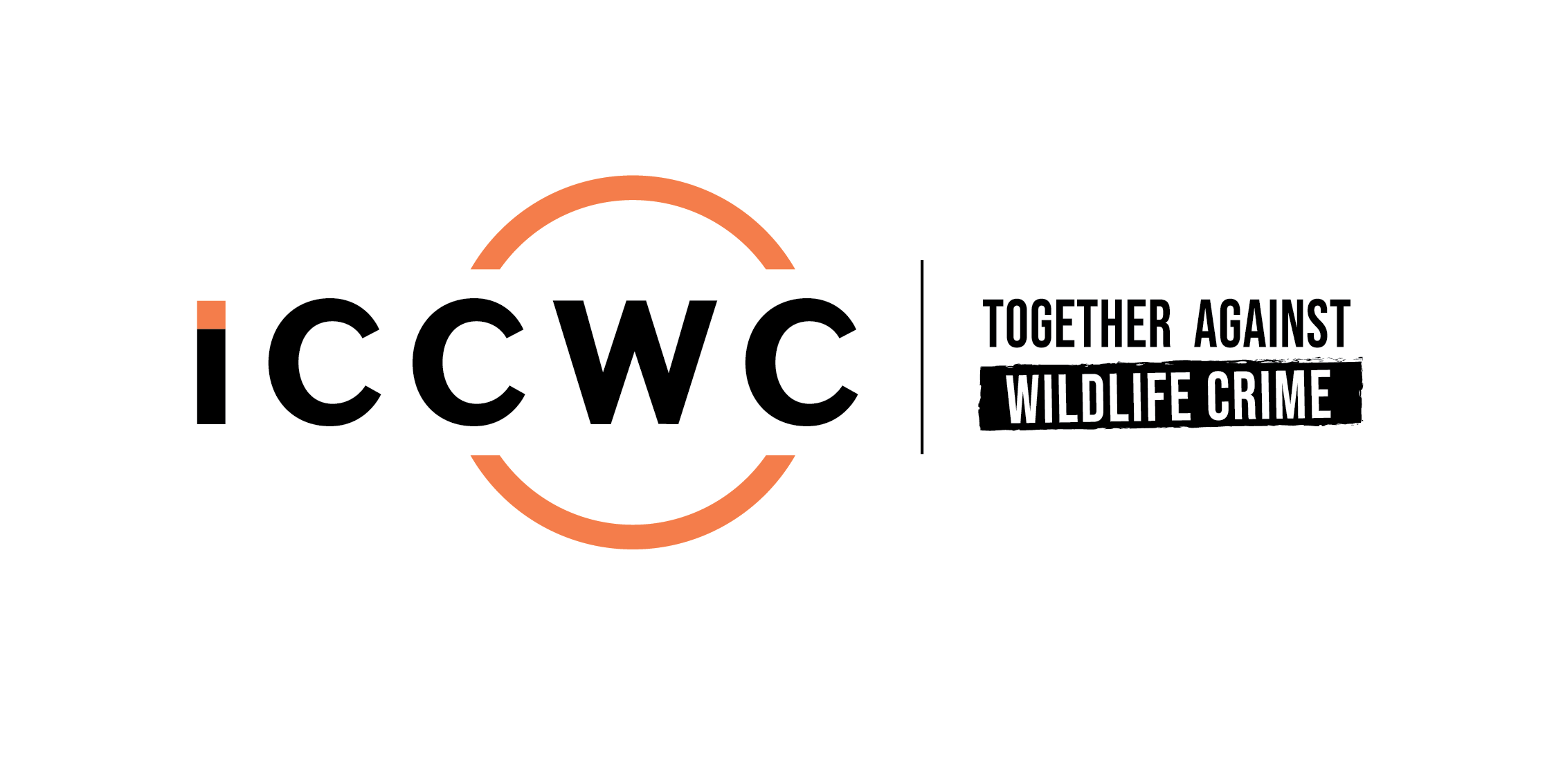
On 21 and 22 November 2022 more than 100 representatives from networks, law enforcement authorities, inter-governmental organizations and other relevant organizations came together at the 4th Global meeting of Wildlife Enforcement Networks (WENs).
Regional networks which comprise a variety of national wildlife law enforcement agencies across the criminal justice chain, including police, customs and prosecutors from around the world, came together to share experiences and enhance collaboration between wildlife law enforcement officers working to combat wildlife crime in their respective regions. Networks explored how to further strengthen their operational effectiveness, analysed regional and subregional wildlife crime trends and considered how to increase regional and global cooperative efforts to combat wildlife crime. Progress was reviewed taking into consideration the outcomes of the 3rd Global Meeting of WENs, held in Geneva, Switzerland, in 2019.
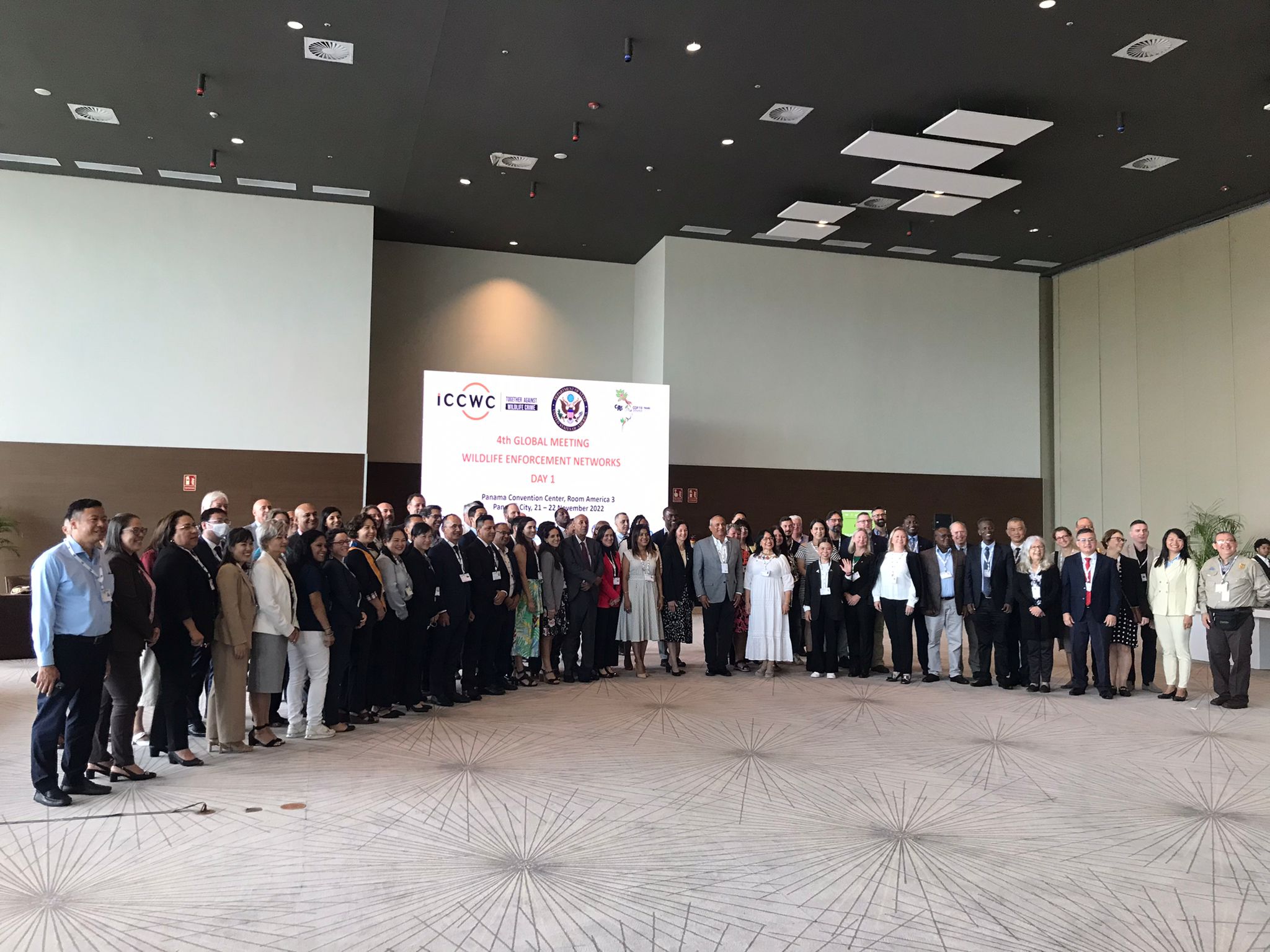
Best practices and lessons learned from existing networks were considered, including new opportunities for promoting the use of tools and services available to strengthen law enforcement efforts.
Key outcomes of the meeting amongst others encouraged that:
- WENs use the ICCWC Guidelines for Wildlife Enforcement Networks as well as other tools and services available through ICCWC Partner agencies, to help strengthen their efforts and to request support from ICCWC as needed.
- WENs as relevant and appropriate increase collaboration and engagement with activities and initiatives deployed in their respective regions, including for example those mobilized by the USFWS Law Enforcement Attaché Programme, the Global Environment Facility (GEF-8) and the associated Global Wildlife Programme, as well as Civil Society Organizations.
- ICCWC give greater visibility to information concerning WENs on the ICCWC website, including for example by making available network information sheets and the directory of WEN focal points.
- Cooperation and collaboration between and across networks be further strengthened, including by where appropriate promoting secondments and inter-regional sharing of experiences by inviting representatives from different networks and regions to their respective regional meetings or activities.
- WENs in coordination with relevant stakeholders continue to provide capacity building across their respective regions to enhance the effectiveness of responses to combat wildlife crime.
- WENs, ICCWC and relevant stakeholders to consider the key trends, priorities and species identified during the meeting and explore opportunities to mobilize targeted activities focussing on them.
Speaking at the WEN meeting, Ivonne Higuero, CITES Secretary General said, “Wildlife crime is a security threat which undermines the rule of law and is inherently interconnected with biodiversity loss and climate change. WENs play an important role, and we need them to continue to support the implementation of CITES as a key connecting element of efforts across the globe. Only by working together can we overcome the threat of wildlife crime.”
Monica Medina, Assistant Secretary for Oceans and International Environmental and Scientific Affairs at the US Department of State said, “We have come a long way in improving our capacity to detect and interdict trafficked wildlife and fight nature crime. There are numerous examples of cases where transboundary cooperation resulted in seizures and arrests, not to mention successful investigations and prosecutions.”
Medina further added “Our individual and collective successes illustrate how far we have come. But I encourage all of us to remain cognizant of how dire the situation remains.”
Enforcement networks with different purposes and objectives focused on combating wildlife crime have developed over the years. If functioning optimally, WENs can play an important role in facilitating increased collaboration and enhancing regional and international responses against wildlife crime.
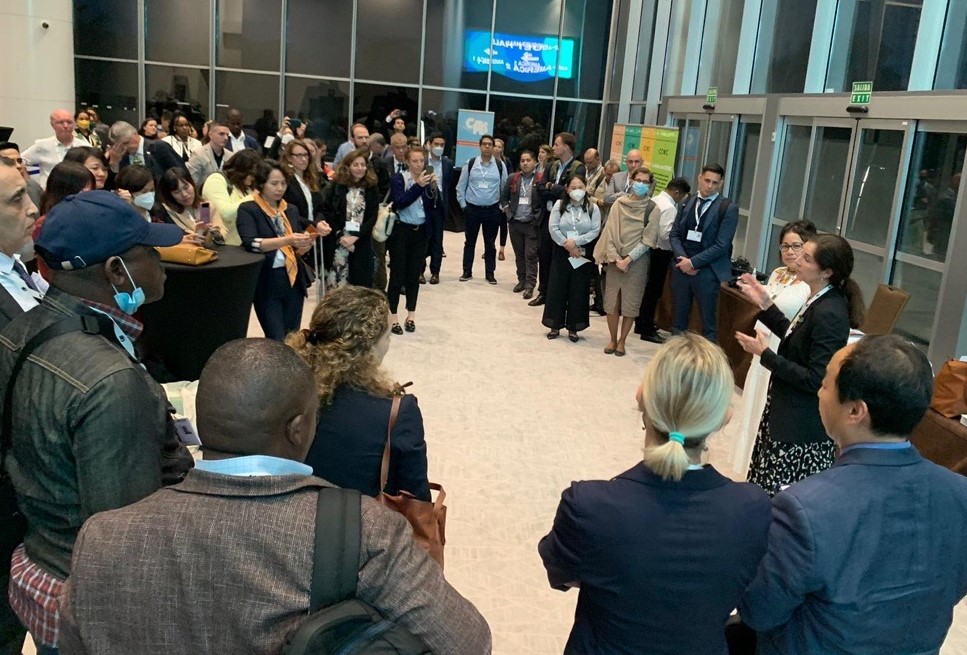
The meeting was convened by the Secretariat of the Convention on International Trade in Endangered Species of Wild Fauna and Flora (CITES), on behalf of the International Consortium on Combating Wildlife Crime (ICCWC) and with generous funding support from the U.S. State Department's Oceans and International Environmental and Scientific Affairs Bureau. This meeting was held alongside the 19th meeting of the Conference of the Parties to CITES (CoP19), which is currently taking place in Panama.
Participants included representatives from the Association of Southeast Asian Nations Working Group on CITES and Wildlife Enforcement (ASEAN – WG), the Caribbean Wildlife Enforcement Network (CaribWEN), the Commission of Central African Forests / Central Africa WEN (COMIFAC), the China National Inter-agencies CITES Enforcement Coordination Group (NICE-CG), the Horn of Africa WEN (HAWEN), the European Commission Enforcement Working Group, the Lusaka Agreement Task Force (LATF), the North America Wildlife Enforcement Group (NAWEG), the Red de Observancia y Aplicación de la Normativa Silvestre para Centroamérica y República Dominicana (ROAVIS / Central América WEN), the Rhino and Elephant Security Group (RESG), the South America WEN (SudWEN) and South Asia WEN (SA-WEN) ; delegates from Australia, Canada, Colombia, Eritrea, Ethiopia, Israel, Italy, Kenya, Maldives, Oman, Panama, Peru, Tanzania, United Kingdom of Great Britain and Northern Ireland, United States of America and Viet Nam; representatives from ASEANOPOL, the CITES Secretariat, INTERPOL, the United Nations Office on Drugs and Crime, the World Bank and the World Customs Organization as well as representatives from the ADM Capital Foundation, Animal Welfare Institute, Cheetah Conservation Fund , Defenders of wildlife, Environmental Investigation Agency, Grace Farms Foundation, IFAW, Malaysian Timber Industry Board, TRAFFIC, Wildlife Conservation Society, Wildlife Justice Commission and the World Wildlife Fund.
The full report of the meeting will be made available on the ICCWC website.
The meeting follows the First, Second and Third Global Meetings of WENs. For more information on the Consortium’s support to networks, please see: https://iccwc-wildlifecrime.org/implementation-support
For more information on ICCWC please visit: https://iccwc-wildlifecrime.org/
_________________________
Note to Editors:
For media inquiries, please contact
At the CITES Secretariat: David Whitbourn at david.whitbourn [at] un.org (david[dot]whitbourn[at]un[dot]org)
About ICCWC:
The International Consortium on Combating Wildlife Crime (ICCWC) is a unique partnership of five intergovernmental organizations to help law enforcement bring criminals engaged in wildlife crime to justice.
Through technical assistance, tools, training, and operational support, ICCWC works along the entire criminal justice chain, building the capacity of frontline law enforcement in countries and regions around the world affected by wildlife crime.
The ICCWC partners are the Secretariat of the Convention on International Trade in Endangered Species of Wild Fauna and Flora (CITES), the International Criminal Police Organization (INTERPOL), the United Nations Office on Drugs and Crime (UNODC), the World Bank Group (WBG) and the World Customs Organization (WCO).
The work delivered by Consortium through the ICCWC Strategic Programme 2016-2020 has been made possible by the generous financial support of the European Union, France, Germany, the Principality of Monaco, the United Kingdom of Great Britain and Northern Ireland and the United States of America.
Find out more about ICCWC by visiting iccwc-wildlifecrime.org.
The CoP19 document on the International Consortium on Combating Wildlife Crime (ICCWC) can be found on: https://cites.org/sites/default/files/documents/COP/19/agenda/E-CoP19-17-05.pdf
Connect with ICCWC:

